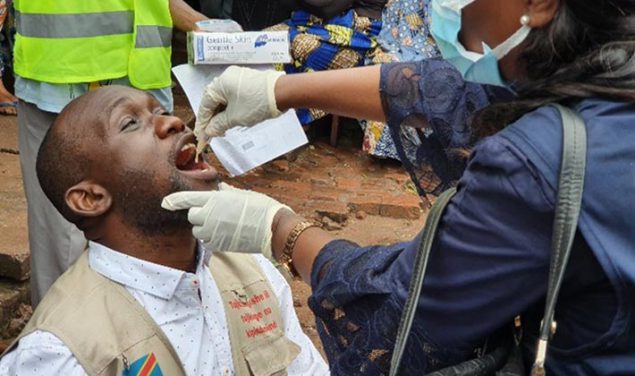Government set to Roll out the Oral Cholera Vaccine
By Loraine Phiri

The government is set to administer the oral cholera vaccine in affected hotspot areas as of January 29 in an effort to curb the cholera outbreak that has affected more than 20,000 people since its outbreak.
According to the Ministry of Health and Child Care (MoHCC), as of January 24, 2024, Zimbabwe had recorded 20 446 suspected cholera cases, 2 324 confirmed cases, 19 711 recoveries, 71 confirmed deaths, and 381 suspected deaths.
The Minister of Health and Child Care, Douglas Mombeshora, told the media that Zimbabwe will receive 892,286 doses of the oral cholera vaccine out of a total allocation of 2.3 million granted by the International Coordination Group on Vaccine Provision.
“The vaccination campaign is expected to start on January 29 in phases, starting with the hotspots. This is because the doses are not enough to cover the whole country, so we will start with the hotspots and roll out to other areas as we receive more and more vaccines,” Dr. Mombeshora said.
“We will be targeting the hotspot areas otherwise known as prioritised areas for multi-sectoral interventions where cases are being recorded countrywide and these areas include targeted districts in Harare, Manicaland, Masvingo, Midlands, Mashonaland East and Central.
“The targeted districts include Mutare Rural and Urban, Buhera, Gutu, Mberengwa, Zvishavane, Uzumba Maramba-Pfungwe, Mazowe, Mbire, Mt. Darwin, the high-density suburbs of Kuwadzana, Budiriro, Southlea Park, Glen View and Mbare, Highfield, Glen Norah, and Chitungwiza,” Dr. Mombeshora said.
Only one dose instead of the standard two doses will be administered, with an expected protection of at least six months because of shortages of the vaccines globally.
Commenting on the rollout of the cholera vaccine, Community Working Group on Health (CWGH) Executive Director Itai Rusike said: “The vaccine remains a complimentary measure and not a replacement for Water, Sanitation, and Hygiene (WASH) interventions, and these need to be implemented even as the population receives vaccination.”
Ms Thabiso Sibanda, a Public Health Advocate concurred with Mr Rusike and underscored that WASH empowers communities with the knowledge and resources needed to prevent cholera by promoting behaviour change and enabling early detection and response.
Sibanda further noted that, “WASH interventions should go beyond health literacy to access to services and commodities that are essential in the prevention and mitigation of the cholera outbreak. Access to clean water and proper sanitation services remain one of the key social determinants of health.”
According to the World Health Organisation (2024), the provision of safe water, basic sanitation, and hygiene practices is critical to preventing and controlling the transmission of cholera and other waterborne diseases. Oral cholera vaccines should be used in conjunction with improvements in water and sanitation to control cholera outbreaks and for prevention in areas known to be high-risk for cholera.
